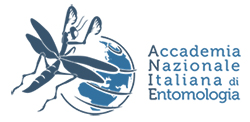
ANDREA BATTISTI
andrea.battisti@unipd.it
BIOGRAPHY
Born 1959, M.S. 1982, Padua University, Forestry, and Ph.D. 1987, Bologna University, Entomology. Forest Entomologist at Forest Service of Veneto District, Italy until 1990, then researcher and professor at the Universities of Florence and Padua.
Coordinator of teaching and research activities at the School of Agriculture and Veterinary Medicine, University of Padua. Head of the Doctoral School of Crop Sciences at the University of Padua. Teacher in entomology, zoology, biotechnology, ecology at the Universities of Florence and Padua. Visiting scientist and teaching at the Universities of SLU Sweden, BOKU Austria, and University of Queensland Australia.
Associate Editor of Agricultural and Forest Entomology, Journal of Pest Science, Forest Ecology and Management.
The scientific research activity regards i) the ecology and management of forest insects (mechanisms of response of insects to climate, population genetics, host plant quality, population dynamics) using processionary moths, sawflies, cone and seed insects, and bark beetles as models; ii) the ecology and management of invasive species (surveillance networks, detection of quarantine species; iii) insects harmful to humans (mechanism of action and ecological significance of urticating hairs of arthropods).
Rassati D, Faccoli M, Petrucco-Toffolo E, Battisti A, Marini L 2015. Improving the early detection of alien wood-boring beetles in ports and surrounding forests. Journal of Applied Ecology 52: 50-58.
Basso A., Negrisolo E., Zilli A., Battisti A., Cerretti P., 2017. A total evidence phylogeny for the processionary moths of the genus Thaumetopoea (Lepidoptera: Notodontidae: Thaumetopoeinae). Cladistics, 33: 557-573.
Battisti A, Larsson S, Roques A 2017. Processionary moths and associated urtication risk: global-change driven effects. Annual Review of Entomology 62: 323-342.
Salman MHR, Bonsignore CP, El Alaoui El Fels A, Giomi F, Hodar JA, Laparie M, Marini L, Merel C, Zalucki MP, Zamoum M, Battisti A. 2019. Winter temperature predicts prolonged diapause in pine processionary moth species across their geographic range. PeerJ 7:e6530
Ruzzier E, Kadej M, Battisti A. 2020. Occurrence, ecological function and medical importance of dermestid beetle hastisetae. PeerJ 8:e8340
